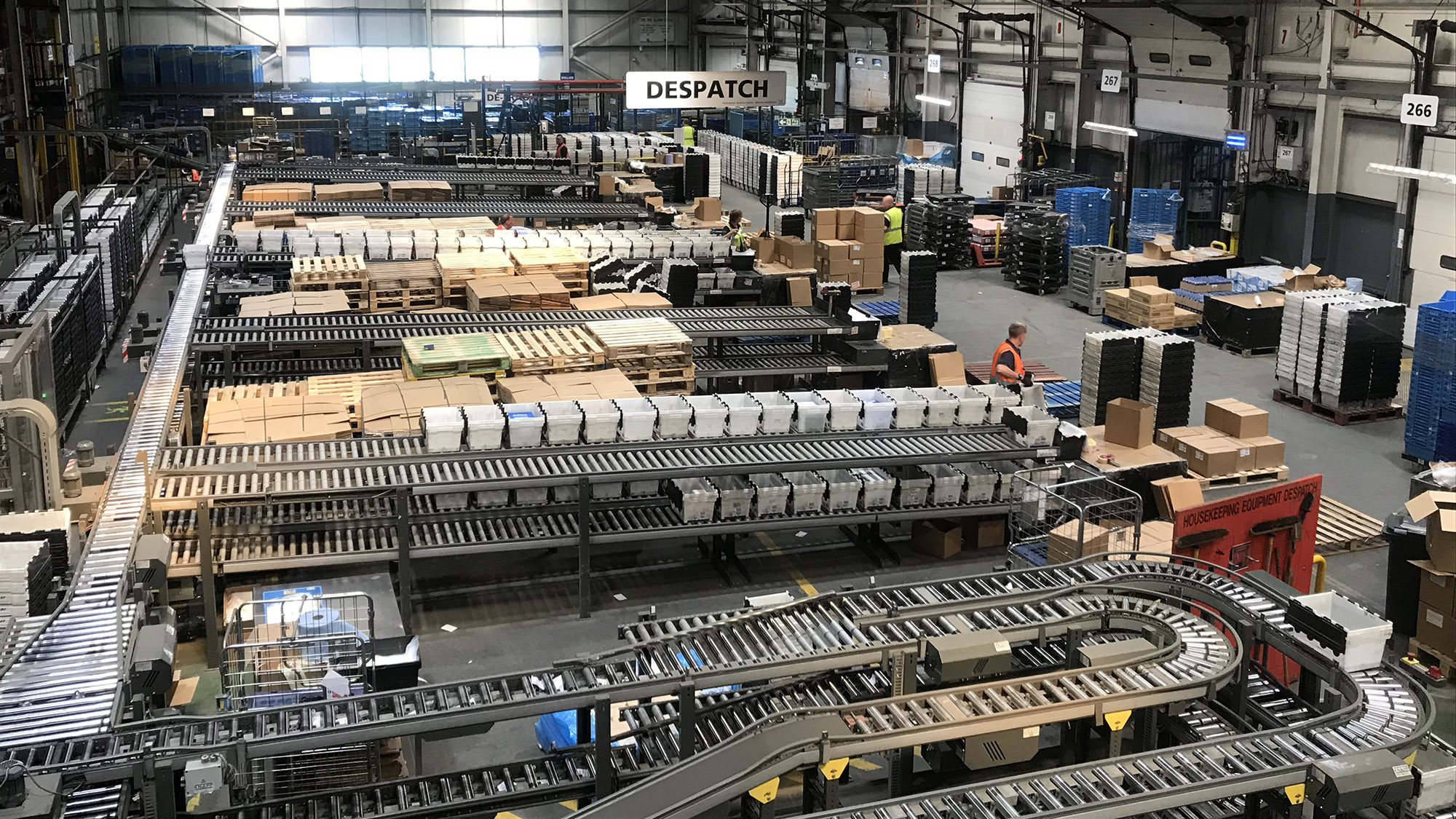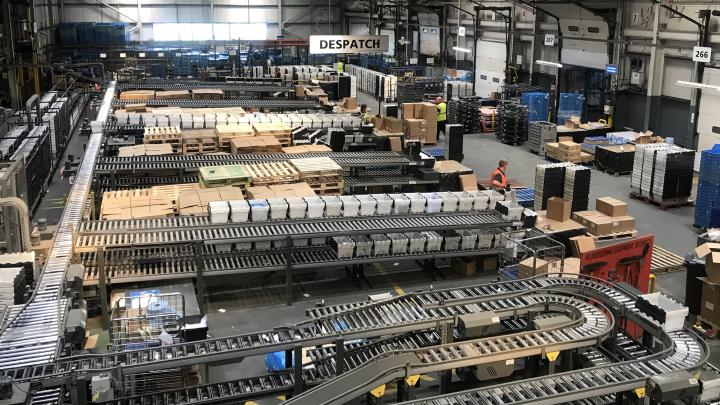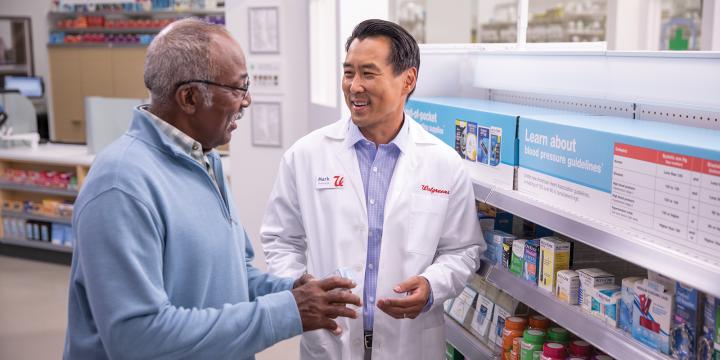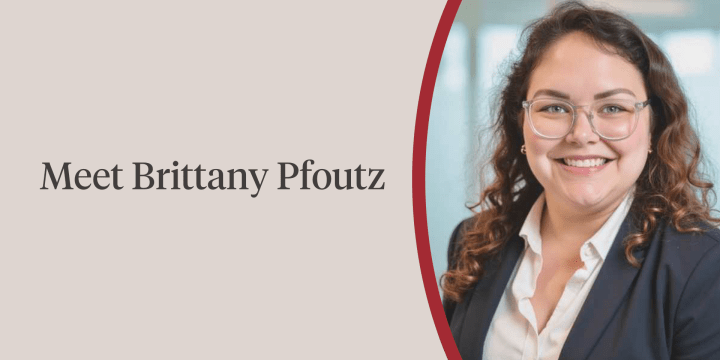Above: The Alliance Healthcare warehouse where Jack Peat and other WBA employees have volunteered to work shifts during the COVID-19 pandemic.
Events are Jack Peat’s area – what he does best, what he prides himself on. For the last two years, from his office in Nottingham, England, he has helped arrange everything from product launches to large conferences and award ceremonies for Walgreens Boots Alliance, pinning down the details of venues, lodging, airfare, food and audio/video equipment – making sure hosts and attendees from inside and outside the company have what they need.
But there was one event Peat hadn’t thought to plan for: a pandemic.
As the coronavirus spread around the world, reaching England by early March, events that Peat and his colleagues had worked on for months were suddenly and systematically shut down. The team spent the initial weeks adjusting, first checking that employees were no longer traveling, then rebooking venues for later in the year or finding new ways to hold events altogether.
 “Initially, I was kept very busy,” says Peat. “In particular, I worked very hard to rearrange a ‘Beauty Reinvention’ event we had planned in order to promote new store furniture at Boots UK stores. But even then, it was all put on hold. It just wasn’t practical for people to group together in the way we would normally operate these types of events.”
“Initially, I was kept very busy,” says Peat. “In particular, I worked very hard to rearrange a ‘Beauty Reinvention’ event we had planned in order to promote new store furniture at Boots UK stores. But even then, it was all put on hold. It just wasn’t practical for people to group together in the way we would normally operate these types of events.”
Cancellations are hard enough for event attendees. But where do they leave an event planner?
“I found myself with not a lot to do,” Peat admits. “As we all started to go into lockdown across England, my calendar was suddenly very empty.”
That’s when Peat got a voicemail from one of the managers he’d worked with on the canceled Beauty Reinvention event, asking to book a training venue … for the very next day. He called her straight back.
“I said, ‘I’m not sure we can do any events right now – it may be frowned upon,’” says Peat. “She explained it was an important project of national interest, and asked if I could join. I jumped at the opportunity to be involved in something. And it turned out to be beyond anything I’d ever expected to be doing.”
Same skills, greater purpose
The new project was both ambitious and urgent: testing front-line health care workers for the coronavirus at the UK’s first drive-thru testing sites, which the UK government had asked Boots to set up. Hundreds of National Health Service (NHS) workers and Boots volunteers would need to be trained to operate these sites around the UK. And for the first training to happen quickly and effectively, they would need a venue in London with proper safety considerations … in less than 24 hours’ time.
Peat’s colleague had called the right person.
“It was about 5 p.m. on the evening before the training,” Peat says, “so I rang a hotel in Watford that we had used before and said, ‘I don’t suppose you’re open, are you?”
The hotel was open – and eager to help. Peat not only secured the training space without giving away details about the then-confidential project, but also was able to build in the necessary social-distancing measures to help keep trainees safe. Only 20 to 30 people would occupy a space designed for up to 300 people, so that they could sit comfortably apart from each other, and all refreshments would be pre-packed to limit the risk of contamination.
After his work to set up that initial venue, Peat offered to do the same for other testing sites’ trainings over the next few weeks. The work kept him incredibly busy – and came with some surprises. When an instructor discovered his car had broken down the night before a training, Peat came to his rescue, locating a rental car and arranging for a taxi to get the trainer from his home to the rental car office, which Peat had persuaded to stay open 30 minutes later. He also arranged for the trainer’s car to be towed to a garage for repairs. This episode convinced Peat to start providing a new service: booking cars for other trainers and volunteers if they needed help reaching the venues and testing sites.
“I became a bit of a crisis manager at this point,” he says. “It’s not just me, but many others who have turned their hand to whatever has needed to be done to get these testing sites going, because we all know how important they are right now.”
‘I’ve got to do more’
With help from difference-makers like Peat, the UK government closed in on its drive-thru testing targets by the end of April. But Peat wasn’t through with finding new ways to contribute.
“Working on this project was very reactive,” he says. “It meant that I could be incredibly busy for a few hours and then not have anything significant happening for the rest of the day. It was in those quieter moments that I thought to myself, ‘I can do more. I’ve got to do more.’ I can’t sit at home, be bored and get a bit low. I’d really rather be kept busy. So I wanted to help where I can.”
He responded to a WBA email offering volunteer opportunities to employees across Boots and Alliance Healthcare in the UK. Before long, after an initial meeting and the appropriate safety and social distance training, he was helping in an Alliance Healthcare warehouse in Nottingham for a few hours each week – work that continued at the time of publication.
“I thought, ‘I don’t care what they want me to do. If it’s opening boxes and filling shelves with products to be ready for orders to be picked and sent out to customers, then I’ll absolutely do it,’” says Peat. “Whatever needs to be done – if it’s sweeping the floor – I don’t care. I just want to help.’”
Like so many others around the world during this pandemic, having something to do has been good for Peat’s mental well-being.
“I go through phases of being all right, where I’m cracking on with plans for the future with the rest of my event colleagues,” he says. “And then I’ll have days where I feel really low. And I think that’s completely natural – if you didn’t have days when you feel bad, then that’s not human.
“There is worry for many people in the world right now – around jobs, health or just simply feeling safe,” he adds. “Keeping myself occupied with the extra volunteering has been very helpful. And I’ll continue to do it for as long as I am needed.”
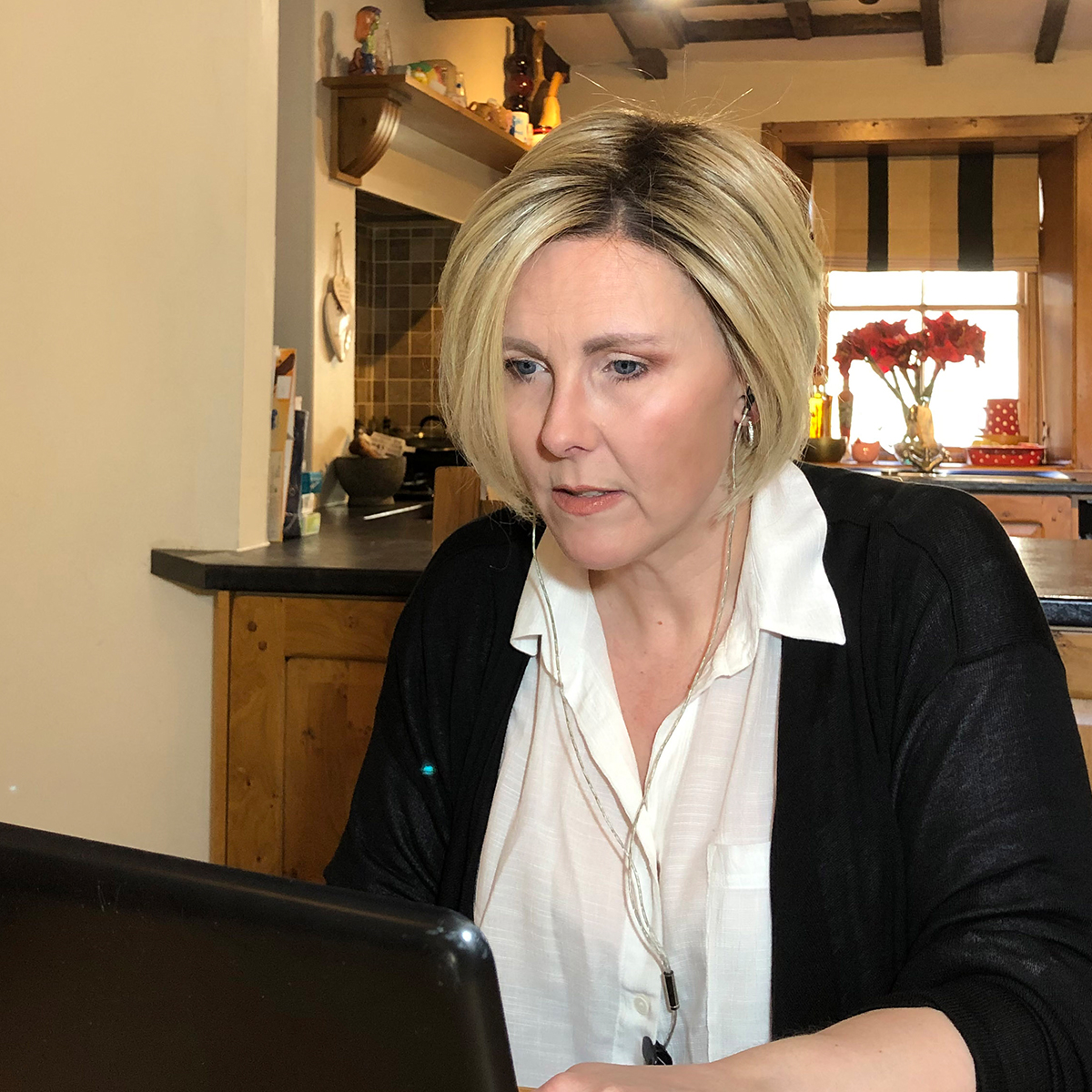
Across WBA, employees are taking on new roles or finding ways to volunteer beyond the workplace. For example, the National Health Service recently asked Boots UK pharmacists to assist with NHS 111 – an alternate phone number that the British public can call for over-the-phone medical advice in order to help keep the traditional 999 emergency lines free for emergencies only. NHS 111 has seen enormous call volume during the pandemic, with waits of sometimes an hour or more. Select Boots pharmacists, including Debbie Churcher in Chesterfield, England (pictured), have been fielding calls remotely – including from their homes – when callers need pharmacy guidance.
“As pharmacists, we see patients every day in the community who have questions about their medicines or a minor ailment, or who have concerns about new medicines they may have been prescribed,” says Churcher. “But with so many people currently isolating at home, patients don’t have the same access to community healthcare, so we’re seeing more calls to NHS 111. I’m really proud that I can help support the NHS in this way.”
